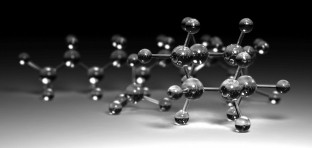Estrogen, testosterone, adrenaline and insulin are hormones that significantly affect health. Hormones are secreted by various glands and organs, including the thyroid gland, adrenal glands, pituitary gland, ovaries (testicles), and pancreas. The entire endocrine system controls the balance of hormones circulating in the body, and their imbalance can lead to significant health problems. Traditional treatments for hormonal imbalances include hormone replacement therapy, birth control pills, insulin injections, thyroid medication, and more. hormonal background, which will tell estet-portal.com.
Signs and symptoms of hormonal imbalance
Symptoms of hormonal imbalance can vary greatly depending on the type of imbalance. The most common signs and symptoms of hormonal imbalance are:
- irregular menses and infertility;
- gaining or weight loss (not explained by changes in diet);
- depression and anxiety;
- fatigue and irritability;
- insomnia;
- reduced libido;
- loss or increase in appetite;
- digestion problems;
- thinning and hair loss;
- acne;
- loss of muscle mass;
- erectile dysfunction, etc.
Hormone imbalance is the result of a combination of the following factors: genetic predisposition, nutrition, stress level, past diseases, exposure to toxins, problems with the gastrointestinal tract, being overweight.
Below, we'll look at how to balance your hormones naturally, as follows:
- through dietary adjustments;
- through physical activity;
- through other changes.

What dietary changes help restore hormone balance?
To restore your hormone balance, try the following dietary changes:
- Eat Healthy Fats
Fatty acids help balance hormones as they are used to synthesize them, help suppress inflammation, boost metabolism, and promote weight loss. Such fats can be found in coconut oil, avocado, salmon, nuts.
- Try Adaptogen Herbs
Adaptogen herbs are a unique class of herbs that help balance hormones and protect the body from stress-induced illnesses. These herbs include: ashwagandha, medicinal mushrooms, rhodiola, and holy basil (tulsi).
- Balance omega-3 and omega-6 fatty acids
Most often, omega-6 fatty acids significantly predominate in the diet of a modern person. To restore the balance of these fatty acids to normal, take care of a sufficient amount of foods containing omega-3 in the diet. These foods include: oily fish, nuts, flax and chia seeds, canola, etc.
- Limit alcohol and caffeine intake
Remember that caffeine and alcohol are only beneficial in limited amounts. Caffeine, for example, when consumed in excess, negatively affects the production of hormones, increases cortisol levels and disrupts the normal sleep cycle. In addition, caffeine can affect the production of adrenaline. Alcohol in excess can damage the liver and cause estrogen dominance.
What types of physical activity help to balance hormones?
The best type of exercise that helps to maintain hormone balance is high intensity interval training (HIIT). They help boost your metabolism and get rid of extra centimeters.
Exercise is a great way to maintain healthy hormone levels as it helps reduce stress, regulate appetite, improve sleep quality and fight inflammation. People with hormonal imbalances need to approach physical activity with the utmost care. It is better to choose short workouts (about 20 minutes three times a week), and discuss their intensity with your doctor, who will determine the optimal load according to your state of health.
Other factors that play an important role in maintaining hormone balance
Besides diet and exercise, there are other ways to influence hormone balance:
- Keep your gut healthy. Gut problems can be a source of autoimmune reactions, including arthritis and thyroid disease. Beneficial bacteria help maintain a healthy gastrointestinal tract, which have a beneficial effect on the production and regulation of insulin, ghrelin and leptin. Try to avoid processed foods, gluten, high amounts of sugar. Regularly consume broths, kefir, pickled vegetables, fresh foods high in fiber.
Proper nutrition + sports + healthy sleep - stress - toxins = normal balance of hormones.
- Limit the use of toxins in your kitchen and beauty products. DEA, propylene glycol, sodium lauryl sulfate - these substances in cosmetics should be avoided, as well as the use of plastic containers and aluminum cans.
- Sleep and fight stress. Lack of sleep or disruption of the circadian rhythm can be the cause of hormonal imbalance as a result of increased levels of the stress hormone cortisol. Stress also negatively affects blood levels of glucocorticoids, catecholamines, growth hormone and prolactin. Therefore, it is important to monitor healthy sleep and protect yourself from stress with relaxation methods.
Remember that in some cases, it is simply necessary to resort to traditional treatment with hormones to treat hormonal imbalances: for example, in the case of type 1 and type 2 diabetes, adrenal insufficiency, Addison's disease, Graves' disease and Cushing's syndrome, constant monitoring by a doctor is necessary.






Add a comment